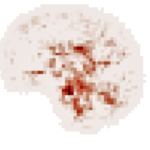Today Dell Technologies announced one of the first computational projects for The University of Queensland’s Dell HPC system may enable a non-invasive disease-modifying strategy for Alzheimer’s Disease. “With this supercomputer, the University of Queensland can harness machine learning to drive innovation, across a broad range of use cases, that previously wasn’t possible. We’re honored to play our part in the resulting discoveries that can change lives for the better.”
Using Ai to Automatically Diagnose Alzheimer’s Disease
Researchers from Stanford University have developed a deep learning based system that can automatically detect Alzheimer’s disease and its biomarkers from MRIs, with 94 percent accuracy. “Our method uses minimal preprocessing of MRIs (imposing minimum preprocessing artifacts) and utilizes a simple data augmentation strategy of downsampled MR images for training purposes,” the researchers stated in their paper.
HPC and Precision Medicine: A New Framework for Alzheimer’s and Parkinson’s
Joe Lombardo from UNLV gave this talk at the HPC User Forum. “The University of Nevada, Las Vegas and the Cleveland Clinic Lou Ruvo Center for Brain Health have been awarded an $11 million federal grant from the National Institutes of Health and National Institute of General Medical Sciences to advance the understanding of Alzheimer’s and Parkinson’s diseases. In this session, we will present how UNLV’s National Supercomputing Institute plays a critical role in this research by fusing brain imaging, neuropsychological and behavioral studies along with the diagnostic exome sequencing models to increase our knowledge of dementia-related and age-associated degenerative disorders.”






